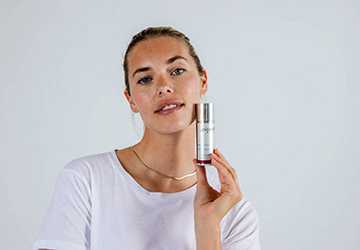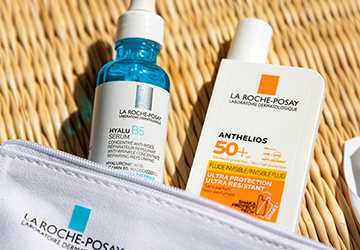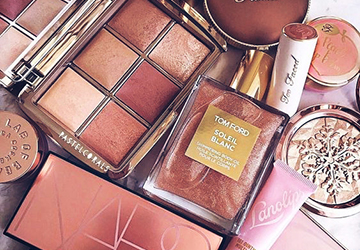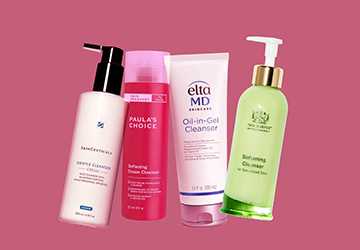Retinol is one of the most popular sources of vitamin A and is often used in skincare products due to its potent anti-ageing properties.
It can work wonders in eliminating wrinkles, refining the skin's surface, and circulating cells for a youthful appearance.

The benefits of Retinol in daily skincare are immense, and everyone should consider adding it to their routine. It is perfect for daily use. You will notice reduced fine lines and spots and improved skin texture within a week.
This blog post will help you understand how to benefit from Retinol and incorporate it into your daily skincare routine. We focus on four effective techniques for integrating this powerful ingredient easily.
Get ready for the ultimate transformation of your skincare routine and give your skin the radiant, youthful complexion you've always wanted.
Why is Retinol good for your skin?
Retinol is a beautiful ingredient with many benefits for the skin. This outstanding product helps reduce the appearance of wrinkles and fine lines.
Retinol effectively increases collagen production at low concentrations and promotes cell regeneration, improving skin texture and smoothness. This process also helps reduce the visibility of pores and achieve a refined skin surface.
Retinol can also treat a variety of skin problems. It effectively treats acne, clears clogged pores and controls sebum production, leaving you with flawless skin.
Retinol is a lifesaver for those who suffer from hyperpigmentation or uneven skin. It is a very effective product because it reduces melanin production, gradually brightens the skin and eliminates discolouration.
Retinol is one of the most effective ingredients in your skincare routine. It helps your skin look fresh, radiant and youthful.
4 Ways to Incorporate Retinol into Your Daily Routine
Let's look at four practical and effective steps to incorporate this unique ingredient into your skincare routine.
1. Start Slowly and Increase Your Usage Gradually
If you use Retinol, gradually introduce it into your skincare routine to prevent severe skin reactions. Start by applying a diluted amount of Retinol, such as 0.01% or 0.025%.
Use retinol products once or twice a week in the evening to get your skin used to the chemical. After a few weeks, slowly increase the frequency to every other night or as needed.
Remember to build up to a slow and steady routine when using Retinol and push your limits at first. If you slowly work up to the product and increase your usage, you'll be less likely to experience redness, dry skin, or flaking but still reap all the benefits.
2. Use Retinol at night
There are many factors to consider regarding skincare, and one of the most important is when you use your skincare products.
For Retinol to work best and avoid sun sensitivity, it's recommended to use it at night before bed. Retinol should not be used in the morning because it weakens the skin's ability to protect itself from UV rays.
To maintain your skincare routine, you can use a good moisturizer that helps you fully nourish and balance your skin overnight.
Using Retinol at night works overnight by stimulating cell turnover and collagen synthesis, so you wake up with bright, radiant skin.
3. Combine Retinol with
a gentle moisturizer
Combining Retinol with a non-irritating moisturizer is crucial to prevent your skin from becoming too dry and irritated. This combination helps soothe and moisturize your skin while allowing the Retinol to work.
Start by washing your face with a gentle, non-irritating cleanser that cleanses the skin and removes dirt without stripping the skin of its natural oils. Next, apply a hydrating toner to the skin before applying Retinol.
After using Retinol, apply a moisturizer to lock in moisture and rejuvenate the skin. To improve hydration and skin feel, look for products with ingredients like hyaluronic acid, ceramides, or niacinamide.
4. Always wear sunscreen during the day
Sunscreen is always recommended when using Retinol, especially when incorporating it into your skincare routine. Retinol makes your skin more sensitive to UV radiation and more susceptible to damage and early signs of ageing.

To keep your skin healthy, apply a broad-spectrum sunscreen with an SPF of 30 or higher every morning, regardless of the weather or planned activities.
Nothing is more important than using sunscreen designed for your skin type and can be used under makeup.
Apply sunscreen every 2-3 hours, especially if you are outdoors for a long time or sweating.
Start Incorporating Retinol Into Your Daily Routine Today.
Retinol products can help you get the beautiful skin you've always wanted. Follow these four steps to get the best skin you've ever wanted quickly. Change
your skincare routine now and see the inside-out changes countless others have experienced. Whether you're concerned about wrinkles, skin texture, or overall skin health, Retinol should be able to address them.
Get radiant, youthful skin today with a retinol product. Thank your skin for making today easy for you!
Frequently Asked Questions
Q: When can I see results from using Retinol on my face?
A: Retinol is effective but requires patience when applied to the skin. It's important to understand that the best results are achieved gradually and require daily use for 4 to 12 weeks. Results will improve over time, mainly if the customer follows the
directions regularly and carefully.
Q: Can I use Retinol if I'm prone to skin Imitation?
A: You can also use retinol products if you have sensitive skin. To prevent skin irritation, it is recommended to start with a low concentration, use less frequently, and always combine with a gentle product rich in moisturizing elements.
Q: Which products should not be used when using Retinol?
A: Do not use other solid ingredients such as AHA, BHA or benzoyl peroxide in the same treatment regimen as Retinol. This combination can lead to increased sensitivity and possible inflammation. They should be used alternately or on different occasions or days.





